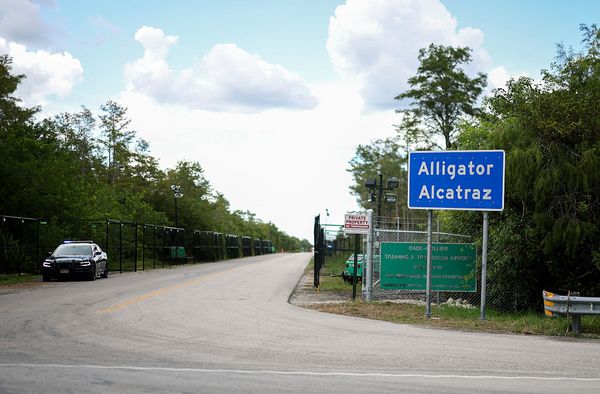
David Cameron’s “bonfire of the quangos” decision to abolish England’s council spending watchdog has left a broken system that is costing taxpayers more money than it was promised to save.
In a highly critical report, academics at the University of Sheffield said the coalition government of the Conservatives and Liberal Democrats had promised savings of £100m a year by abolishing the Audit Commission.
However, replacing the public body with a private-sector model had resulted in “chaos” and soaring costs to audit councils amid the financial crisis hitting England’s town halls.
Several councils have declared effective bankruptcy linked to years of austerity, soaring costs amid pressure on services, as well as local missteps. They include Birmingham, Nottingham and Woking.
The Audit Reform Lab at Sheffield said the average cost of external auditors checking a local authority’s finances was now at least £50,000 higher in cash terms than when the Audit Commission was disbanded in 2015.
Private-sector accountancy firms took over the job of auditing local government accounts in England after the agency was abolished, in an austerity-driven push by Tory and Lib Dem ministers to find savings and efficiencies.
“Ten years on, however, it now seems clear that these reform ambitions have failed,” the authors of the report wrote.
“Only 1% of audits were delivered on time in 2022-23, with many audits delayed by several years. Audit costs have risen dramatically in response. An unwieldy, but ultimately operational centralised bureaucracy was replaced by market chaos. The £100m per annum savings heralded by the UK government in 2014 are now a distant memory.”
The report found that average audit costs in England had more than tripled – an average increase of 238% – in the year to 2023-24. It blamed most of this increase on private-sector auditors hiking their rates.
It compared the large rise in audit costs in England to much smaller increases in Scotland and Wales, where it said there was a much stronger level of central oversight of private-sector auditing.
Some of the biggest increases were at financially stricken councils, including a 620% rise in audit fees at Woking, as well as leaps of 470% at Runnymede and 450% at Spelthorne.
In total 13 councils had fee scale increases of 300% or more in 2022-23. Birmingham city council paid an audit fee above the £1m mark, representing a 314% increase. The councils were approached for comment.
The best public interest journalism relies on first-hand accounts from people in the know.
If you have something to share on this subject you can contact us confidentially using the following methods.
Secure Messaging in the Guardian app
The Guardian app has a tool to send tips about stories. Messages are end to end encrypted and concealed within the routine activity that every Guardian mobile app performs. This prevents an observer from knowing that you are communicating with us at all, let alone what is being said.
If you don't already have the Guardian app, download it (iOS/Android) and go to the menu. Select ‘Secure Messaging’.
SecureDrop, instant messengers, email, telephone and post
If you can safely use the tor network without being observed or monitored you can send messages and documents to the Guardian via our SecureDrop platform.
Finally, our guide at theguardian.com/tips lists several ways to contact us securely, and discusses the pros and cons of each.
Three auditors dominate the local audit market: EY, Grant Thornton and Forvis Mazars. Others including Deloitte and BDO have exited because profit margins are considered too low, while complexity and risks have risen.
EY and Grant Thornton declined to comment. A spokesperson for Forvis Mazars said: “We are working closely with all stakeholders including MHCLG [Ministry of Housing, Communities and Local Government] and remain committed to supporting the return to the delivery of good quality audits for local authorities.”
While audit costs have risen sharply, so has the complexity of checking council finances at a time when growing numbers of local authorities are running into severe financial difficulties.
Experts have also long warned local audit fees have been too low to attract accountancy firms to do the job, compared with the money available in private-sector auditing.
In 2020, an independent review by Sir Tony Redmond found fees were “at least 25% lower than required to fulfil current local audit requirements effectively”.
The breakdown in local audit reached crisis point two years ago when only 1% of English councils had their 2022-23 accounts signed off in time. Ministers then allowed accounts to be completed with qualifications – whereby an auditor signs off but expresses reservations – to clear the backlog.
A new Local Audit Office is also being established to centralise previously fragmented oversight of the process.
An MHCLG spokesperson said: “We have taken decisive action to restore the broken audit system, providing £49m to help councils clear backlogs – but we know there is more to do. This is why we will set up a new Local Audit Office to simplify the system and increase capacity by establishing public sector audit provision.
“This will ensure the local audit system provides accountability, transparency, and value for money for taxpayers.”
Runnymede council said it was on a sound financial footing and did not recognise the fees quoted in the Audit Reform Lab report.







